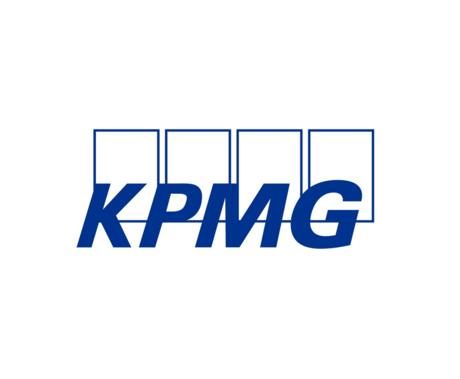„The coming year is crucial for most publishers in China“
Letter: Since 2008 the Chinese publishing industry is changing due to a regime reform. Could you please explain the current situation?
Xiaowei Hu: The process has to be finished by the end of 2012 as the documents of the Chinese Central Government and Ministry of Propaganda require. That means all Chinese press and publishing units should finish regime reforms and transform themselves into enterprises by December and shall merge into giant groups. This process is called entrepreneurialization.
How are B2B media affected?
Xiaowei Hu: B2B media have not been proportioned significantly in the whole media industry until recently. The major barrier for them to develop well is the regime of media. Before 2008, meaning before the start of the regime reform, media were mostly owned by the state or operated by associations, universities or governmental departments. Therefore, the business wellbeing of the media had nothing to do with people who work for them. But the requirements for entrepreneurialization fuelled the industry, whose original purpose was to release the burden of the governmental budget for the traditional subsidies to B2B media for over 50 years. Within the last five years companies transformed into strong B2B publishing companies with multimillion euro revenues every year, as for example Promotion Publishing (former China Machinery Business Newspaper).
Today B2B media is a huge category in the index of governmental media license registration. Mostly, B2B media are not companies. They make up more than 4.000 magazine titles out of 9.500 and over 1.000 newspaper titles out of 2.600 in total.
Who needs a media license?
Xiaowei Hu: All publishers have to have media licenses from the government to publish any publication. This is what a company that wants to enter the media industry should get first.
However, entrepreneurialization is only for those that have already had licenses without any company or enterprise identity in the past decades. This is also important to publishers in order to be real market players in the long run.
What are the most important sectors for B2B media in China?
Xiaowei Hu: The B2B media in China are much dependent on their industries. In the past three decades manufacturing, agriculture, medical, engineering, trade, finance, infrastructure, real estate and constructions have all been prosperously developing in fast speed and installed the strong economy of China as one of the world’s production centers.
What is the current situation for B2B media companies in China?
Xiaowei Hu: As more and more B2B companies like Promotion Publishing emerge this section will become more and more powerful in the next five to ten years. Meanwhile, some international trade show and exhibition companies are themselves acting as publishers that co-operate with existing B2B media license owners.
Which market changes are coming up in the next few years and how will they affect the Chinese B2B media market?
Xiaowei Hu: During the process of entrepreneurialization media licenses are going to be more and more centralized in the hands of less than 100 publishing groups, including the coming co-operation partner list of foreign publishers. This transformation will be finished in less than five years, and B2B media will become a really strong media section from both the government’s and the industries’ perspective, which has never been possible before.
How will revenues from ad sales and magazine sales develop in the next twelve months?
Xiaowei Hu: In the B2B business, ad sales come along with industrial investment. In the year 2011 for example, Japanese direct industrial invest in China has increased over 30 percent. The increased investment will also bring increased budget for advertising for better market performance.
Magazine copy sales in the B2B media market always rely on the exhibition industry and the power of industrial associations. Seldom do media have complete databases of audiences in China. Therefore, media have to accelerate in building up efficient database marketing and subscribing channels to increase revenues out of ad sales and copy sales.
As the geographical reach of China is huge the digitalization of market tools will become more and more urgent for media companies in the future. Online B2B platform giants like ‘Alibaba.com’ have already been penetrating all kinds of industrial exhibitions to collect data for virtual online exhibitions that may be launched one day. Meanwhile, exhibition companies like Reed Exhibitions and its Joint Ventures in China can still enjoy several years of high growth rate.
How may foreign media companies engage in China?
Xiaowei Hu: They are already engaged in the B2B media market. Vogel Business Media for example has been in China for 15 years now, Nikkei BP just got started in China, VNU started from architecture and construction five years ago, Haymarket UK started from ecology and environment recently and Elsevier has a strong engagement in medical and academic paper search and digital subscription.
What are the three most important challenges of the coming year?
Xiaowei Hu: The coming year is crucial for most of the publishers in China including B2B publishers. The publishing licenses are to be more and more centralized in the hands of big publishing groups, which will bring agony to those who had enjoyed an easy life without pressure of market competition in the past. In addition, digitalization will bring new challenges, not at least because the digital environment in urban China is becoming more and more mature. Beyond that the industrial frameworks are facing crucial challenges from international competition concerning costs and currency rates, which are the major influence on profits for most of the Chinese manufacturers. Thus, B2B media will become even more important to help industries to learn how to compete in a smarter way.
Die Fragen stellten Julia Piaseczny und Susanne Broos.
KONTAKT: Xiaowei Hu | VDZ China Desk | x.hu[at]vdz.de






